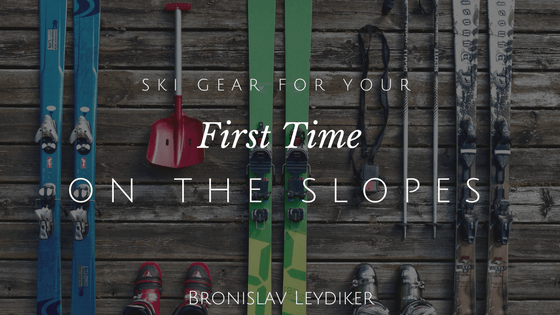Skiing is a great form of exercise and a proven stress reliever. Face the facts, it’s also just plain fun. The risk of injury, while perhaps not as dire as some statistics would suggest, should not be taken lightly, particularly for beginners. These items are essential for any first-timer looking to have a safe and enjoyable experience on the slopes.
Helmet
While helmets were not a commonly seen piece of skiing equipment until the last decade or so, their current popularity should be heralded. Studies have shown that helmets can reduce the risk of head injury by as much as 50 percent. Nowadays, it’s far more unusual to see a skier or snowboarder without a helmet than with one, so join the crowd and protect your cranium.
Goggles
A good set of goggles is imperative for anyone’s first time on the slopes. The lenses protect from more than just flying snow, they also reduce the risk of eye damage caused by glare; and increase visibility, thereby minimizing the probability of collision. Be sure to purchase a pair with anti-fogging lenses, and resist the urge to just wear sunglasses instead. Sunglasses could fall off during the run, whereas goggles will remain firmly locked into place.
Whistle
Whether hiking, skiing, or cycling, outdoor enthusiasts should always carry a high-quality whistle in case they’re even in need of rescue. REI has a wide selection of inexpensive (usually under $10) whistles that won’t freeze in cold temperatures, making them a good bet for winter sports.
Outerwear
Hypothermia carries a significant risk, even during exercise, so be sure to purchase the proper gear for a day spent largely outdoors. Generally, it’s best to start with a solid long-underwear layer (made of wool or another heat-trapping fabric, never cotton), followed by a wicking layer, then a layer of fleece covered by a waterproof jacket. (Some ski jackets have the fleece layer already built in, which can be a great money-saver.) Wear thin socks that won’t bunch up inside the ski boots again, eschew cotton, as it will soak up and retain moisture, leaching away body heat.
This may sound like a hefty list, but remember — every sport or activity requires equipment, and it’s always best to be prepared, particularly in winter. Happy trails!
